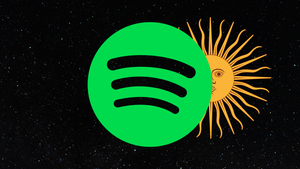Spotify yesterday said that it plans to go through with its threat to shut down in Uruguay because of a change to the country's copyright laws, specifically the introduction of a performer equitable remuneration right in relation to streaming.
In a statement, the streaming service said it “will unfortunately begin to phase out its service in Uruguay effective 1 Jan 2024, and fully cease service by February". It added that it really wants to continue operating in the country, but the copyright reforms "regrettably leave us no choice but to stop being available in Uruguay".
Copyright law often provides performers with a statutory right to payment when their recordings are used in specific ways, usually when they are broadcast or played in public. However, in most countries that right does not apply to streaming. This means that streaming services pay royalties to record labels and music distributors which then share that money with artists subject to the record and distribution contracts they have negotiated.
How much of that money ends up with the artists varies hugely, from a few percent to 100%. Heritage artists often receive a much lower cut - depending on how their label has applied CD-era contracts to streaming - while session musicians get nothing. To that end, some have proposed that there should be ER on streams to guarantee artists a minimum share of any revenue generated by their recordings.
One key question with ER is who pays it: whoever controls the copyright in a recording or whoever actually makes use of the music? If it’s the former, the new ER right on streams in Uruguay won’t really impact on Spotify, it will continue to pay labels and distributors and they must pay the ER to performers. If it’s the latter, Spotify would have to pay the ER and then try to get a discount on its label and distributor deals when they next come up for renewal.
With ER on broadcasts and public performance, it works differently in different countries. Spotify says that, the way Uruguay copyright law has been updated, it’s not clear who is responsible for paying the ER. But, it argues, if it is responsible, it would have to "pay twice for the same music" which "would make our business … unsustainable".
It remains to be seen if Spotify's exit from the market can be stopped by the Uruguayan government clarifying how the new ER right will work and/or by labels and distributors in the country committing to be flexible so that the new performer payments do not entirely come from Spotify's cut of the digital pie.

